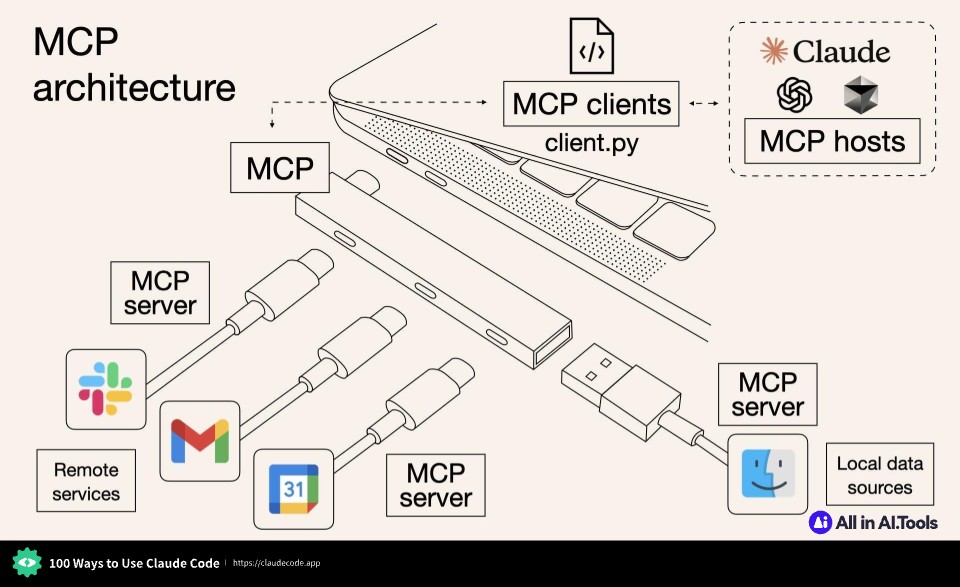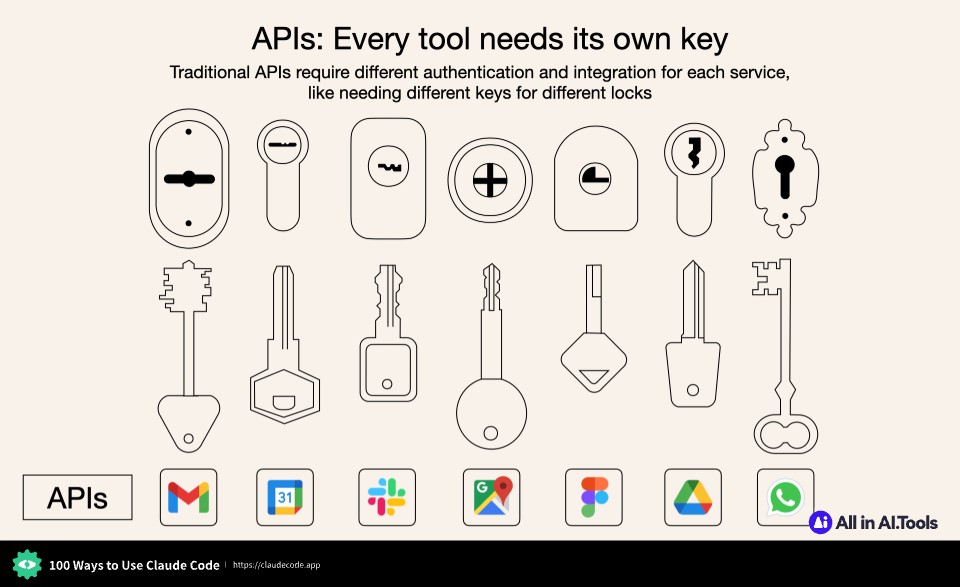Discover and integrate MCP servers to extend Claude's capabilities
Web content fetching and conversion for efficient LLM usage
A Model Context Protocol (MCP) server that provides browser automation capabilities using Playwright. This server enables LLMs to interact with web pages through structured accessibility snapshots, bypassing the need for screenshots or visually-tuned models.
Browser automation and web scraping
A universal Playwright MCP server for browser automation in containerized environments
MCP Server Playwright - A browser automation service for Claude Desktop
MCP server for browsing and interacting with OneNote web app using browser-use automation
MCP server for fetch web page content using Playwright headless browser.
MCP server for browser automation using puppeteer-extra and puppeteer-extra-plugin-stealth
Configurable Puppeteer MCP Server
MCP server for browser automation with screenshot and console logging capabilities
This package vendors a subset of [browser-use](
Open the browser and visit the specified website address
MCP Server to connect your MCP host to V0.dev directly
A MCP Server that provides browser access through playwright with "stealth mode" enabled.
Allow MCP server to operate browser for testing purposes
Tool platform by IBM to build, test and deploy tools for any data source
Interact with any other SaaS applications on behalf of your customers.
⚡️ Open-source AI-powered CLI for web & mobile localization. Bring your own LLM or use Lingo.dev localization engine. Join discord: https://lingo.dev/go/discord
Interact & query with Meilisearch (Full-text & semantic search API)
Query and interact with kubernetes environments monitored by Metoro
Query and analyze data with MotherDuck and local DuckDB
Production-ready RAG out of the box to search and retrieve data from your own documents.
Neo4j graph database server (schema + read/write-cypher) and separate graph database backed memory
Scrape websites with Oxylabs Web API, supporting dynamic rendering and parsing for structured data extraction.
Implement semantic memory layer on top of the Qdrant vector search engine
Interact with your crash reporting and real using monitoring data on your Raygun account
Arbitrary code execution and tool-use platform for LLMs by Riza
Search engine for AI agents (search + extract) powered by Tavily
Interact with Tinybird serverless ClickHouse platform
Tools for seamless integration of different systems and services.
Cloud infrastructure and deployment management tools.
AI-powered tools for creative design workflows across 3D and 2D mediums.
AI-powered tools for product development, design review, and performance monitoring.
Tools for monitoring, analytics, and operational efficiency.


Explore Claude Cowork, Anthropic's groundbreaking AI agent built on Claude Code foundations. Discover how it enables file access, document creation, and task automation for everyone—not just developers. Learn how it integrates with MCP servers and extends Claude Code capabilities.
Explore the major [Claude code](https://claudecode.app) 2.1.1 update featuring 109 CLI improvements, automatic hot reload for skills, sub-agent execution, enhanced security, performance optimizations, and smarter prompt behavior. Learn about all the new features and improvements.
Master the art of prompting Claude with Anthropic official guide. Learn 10 proven strategies to 10x your Claude Opus and Sonnet 4.5 performance. Discover how better prompts lead to better results with practical examples and real-world applications.
Deep dive into sophisticated SSH workflows for Claude Code power users. Learn zero-friction authentication, session management, and advanced techniques that transform your vibe coding experience.
MCP (Model Context Protocol) is an open protocol that standardizes how applications provide context to LLMs. Think of MCP like a USB-C port for AI applications, providing a standardized way to connect AI models to different data sources and tools.
MCP Servers are lightweight programs that expose specific capabilities through the standardized Model Context Protocol. They act as bridges between LLMs like Claude and various data sources or services, allowing secure access to files, databases, APIs, and other resources.
MCP Servers follow a client-server architecture where a host application (like Claude Desktop) connects to multiple servers. Each server provides specific functionality through standardized endpoints and protocols, enabling Claude to access data and perform actions through the standardized protocol.
Yes, MCP Servers are designed with security in mind. They run locally with explicit configuration and permissions, require user approval for actions, and include built-in security features to prevent unauthorized access and ensure data privacy.